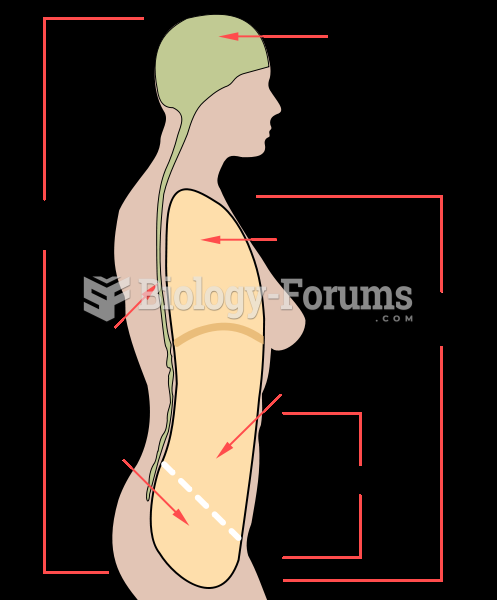|
|
|
There can actually be a 25-hour time difference between certain locations in the world. The International Date Line passes between the islands of Samoa and American Samoa. It is not a straight line, but "zig-zags" around various island chains. Therefore, Samoa and nearby islands have one date, while American Samoa and nearby islands are one day behind. Daylight saving time is used in some islands, but not in others—further shifting the hours out of sync with natural time.
Blood in the urine can be a sign of a kidney stone, glomerulonephritis, or other kidney problems.
The first oncogene was discovered in 1970 and was termed SRC (pronounced "SARK").
This year, an estimated 1.4 million Americans will have a new or recurrent heart attack.
Eating food that has been cooked with poppy seeds may cause you to fail a drug screening test, because the seeds contain enough opiate alkaloids to register as a positive.







